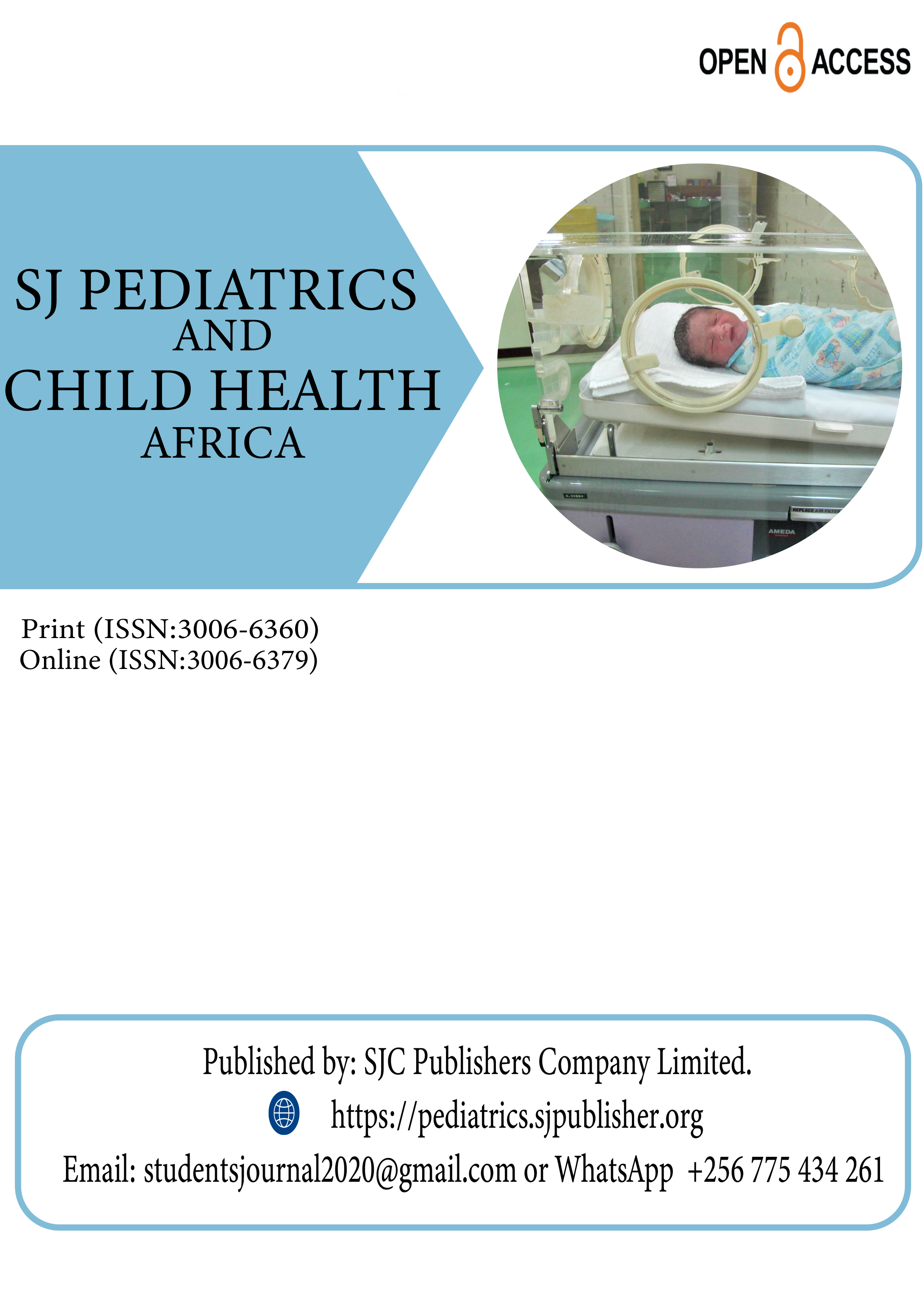FACTORS PREDISPOSING TO NEONATAL ASPHYXIA AMONG NEONATES DELIVERED AT ADJUMANI GENERAL HOSPITAL, ADJUMANI DISTRICT. A CROSS-SECTIONAL STUDY.
DOI:
https://doi.org/10.51168/4514jn72Keywords:
Neonatal Asphyxia, Neonates, Adjumani General Hospital, Adjumani DistrictAbstract
Background
The purpose of the study was to assess the individual factors predisposing to neonatal asphyxia, to find out the community factors predisposing to neonatal asphyxia, and to determine the health-related factors predisposing to neonatal asphyxia.
Methodology
A descriptive cross-sectional study was employed to collect data from 50 respondents. A purposive sampling technique was used and data obtained was presented in tables and figures.
Results
The results of the study reported that individual factors predisposing to neonatal asphyxia were, the majority (82 %) of the respondents had attended antenatal care three times, more than half (52 %) of the respondents reported that they had been diagnosed with severe malaria during pregnancy, the majority (76 %) of the respondents reported to have experienced prolong labor for more than 8 hours.
The findings on the community factor showed that the majority (74 %) of the respondents delivered from the hospital, and most (46 %) of the respondents delivered from home by unskilled relatives.
Findings on health facility factors were, that 56 % of the respondents had nighttime deliveries, 46 % of the respondents had daytime deliveries, more than half (52 %) of the respondents had been delivered by medical interns alone and the majority (66 %) of the respondents reported that the hospital was less prepared for neonatal emergencies.
Conclusion
Poor antenatal care attendance, severe malaria, prolonged labor, night-time delivery, delivery by medical interns alone, and less preparedness of the hospital for neonatal emergencies were the factors predisposing to neonatal asphyxia.
Recommendation
Pregnant mothers should ensure complete attendance of antenatal care to promote successful pregnancy outcomes, proper guidance to be given to medical interns attending labor by experienced midwives to ensure better delivery outcomes, and health workers attending labor should always be prepared to handle neonatal emergencies.
Downloads
Published
Issue
Section
License
Copyright (c) 2024 FELIX ADIBAKU , PROSPER MUBANGIZI (Author)

This work is licensed under a Creative Commons Attribution-NonCommercial-NoDerivatives 4.0 International License.




